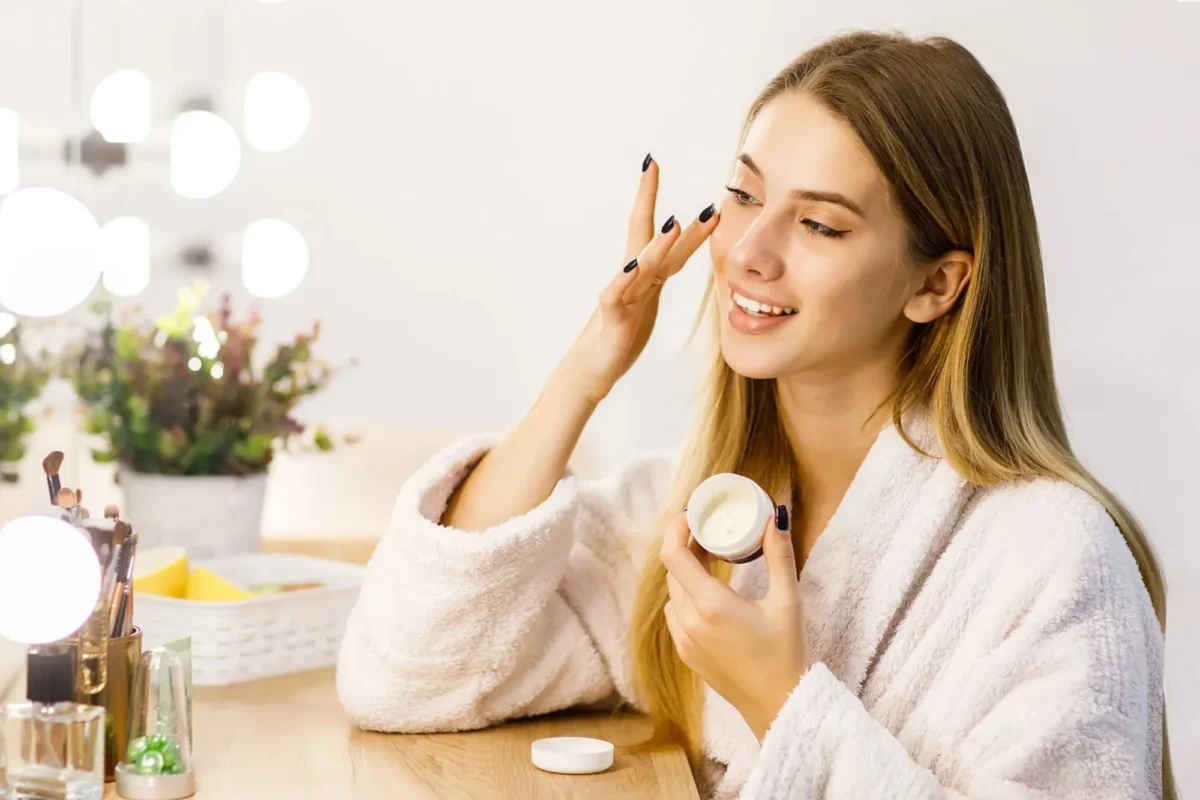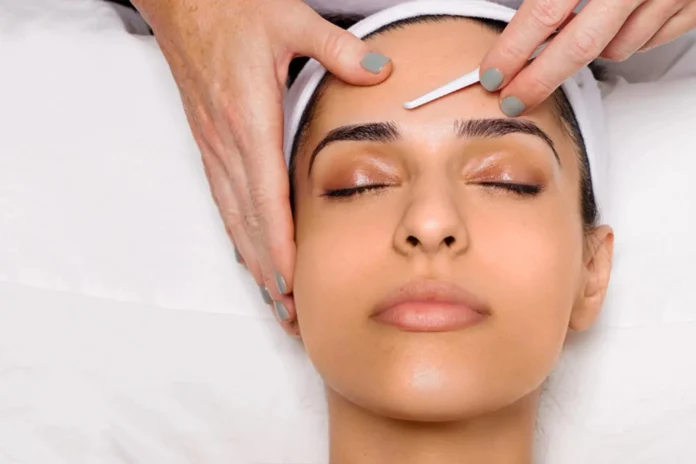Want a radiant glow on your big day? Here’s the pre-wedding skincare treatment brides swear by: Dermaplaning!
So, the countdown has begun, your bridal checklist is growing bigger and all you want is that radiant, lit-from-within glow for your big day. And, totally agreed; makeup can do wonders, but it’s the skincare that lays the foundation. That’s exactly where dermaplaning steps in. Over the past few years, this treatment has become the go-to pre-wedding ritual for brides aiming for smoother, clearer and more even-toned skin. But is it worth trying before your wedding? With Wedding Affair, let’s decode what dermaplaning really is, why brides are raving about it and whether it’s right for you or not!
What is Dermaplaning, Really?
Let’s start with the basics (minus the boring, clinical tone). Think of dermaplaning as a high-end reset button for your skin. Using a specially designed blade, a professional gently grazes the surface of your face, sweeping away the dullness caused by built-up debris and superfine hairs (peach fuzz) that you don’t even know were muting your glow.
It’s not just about the surface; it’s about what lies underneath. Once that veil of old cells and peach fuzz is removed, what emerges is skin that’s visibly fresher, silkier and ready to drink up your serums and moisturisers like a dream. More importantly? Your makeup glides on like butter, and on the day when cameras are flashing from every corner, you can look like your best version!
Read Also: Bridal Makeup Hacks to Glow at Your Haldi Ceremony!
Why You Should Turn to Dermaplaning?

There’s something magical about walking into your wedding events with skin that doesn’t just look radiant but also feels velvety to the touch. For many brides, dermaplaning isn’t just a skincare trend, it’s a confidence booster. This treatment enhances your skin’s texture and clarity, which means your makeup artist has a flawless base to work with. Through this, your foundation wouldn’t cling to dry patches, highlighter will catch the light beautifully, and there’ll be a certain bounce and brightness to the skin that just can’t be faked.
Plus, it’s gentle enough to include in your routine even a month or two before your wedding, allowing time for multiple sessions if needed. From pre-wedding shoots to the wedding day itself, dermaplaning can help your skin stay event-ready with minimal effort.
It’s worth noting, though, for brides with thick or terminal facial hair (common in those with PCOS), dermaplaning might not be ideal. Shaving such hair with a blade can lead to blunt regrowth or even follicle irritation, which could compromise your pre-wedding glow instead of enhancing it.
When Should You Schedule Your Dermaplaning Session?
Timing is everything, especially when it comes to your bridal skincare regimen. The last thing you want is to try something new days before your wedding, only to face redness or an unexpected reaction. An expert will usually recommend that you do a trial session at least 6 – 8 weeks before the big day. This gives your skin a chance to adjust and gives you time to observe how it reacts to the treatment. If your skin loves it (as most do), you can plan your final session about 7 – 10 days before the wedding. This window ensures that your skin has calmed and is in its best condition to flaunt your bridal glow.
Additional Tip: Avoid squeezing in a first-time session during wedding week as skincare experiment and last-minute nerves do not mix well!
Breaking the Myths Around Dermaplaning!

Like most beauty treatments, dermaplaning has its share of urban legends, most of which are either outdated or plain false. Let’s clear them up so you can make a fully informed decision.
Myth 1: Hair grows back thicker and darker
One of the most common fears around dermaplaning is that removing peach fuzz will turn you into a stubbly mess. Not true! The fine facial hair will grow back at the same rate, texture and colour without altering its earlier appearance.
Myth 2: It’s painful and invasive
Despite the use of a blade, the process is surprisingly gentle. Most people describe it as a light brushing sensation, and many even find it relaxing. It doesn’t involve any chemicals, suction or downtime, making it perfect for sensitive brides.
Myth 3: It’s not suitable for all skin types
While very acne-prone skin or highly reactive skin might need more caution (even a consultation sometimes), most skin types benefit from the instant exfoliation dermaplaning offers. It’s particularly great for dry or combination skin, helping makeup to sit better and skincare products to absorb more effectively. However, if your skin is inflamed due to hormonal acne triggered by PCOS, it’s best to avoid dermaplaning until the skin is calm.
Read Also: Hi-Tech Accessories for a Much-Needed Beauty Upgrade
Is Dermaplaning for Every Bride?
Now comes the important question: Should you go for Dermaplaning? While it can be a game changer for many, it’s not a one-size-fits-all solution. If you struggle with dullness, uneven texture or feel like your skincare products aren’t working to their full potential, this might be your skin’s refresh button. Brides with dry patches, fine lines or even slight pigmentation will notice a significant improvement after just one session.
However, if you have active acne breakouts, eczema, rosacea or extremely sensitive skin, it’s best to speak to a dermatologist first. In such cases, an alternative exfoliation method or a different treatment altogether may be better suited for you. Remember: glowing skin is not about chasing every trend, but choosing what works best for your unique skin.
How to Prep and Care for Your Skin Post-Treatment

To get the most out of your dermaplaning experience, preparation and aftercare are the important keys.
Before the session
- Avoid exfoliants, retinols or strong actives 3-5 days before.
- Stay out of the sun and hydrate well.
- Let your skincare professional know about any allergies or past reactions.
After the session
- Keep your skin protected with a broad-spectrum SPF as your skin’s most vulnerable post-exfoliation.
- Skip makeup for at least 24 hours if possible to let your skin breathe.
- Use calming, hydrating products to maintain the post-treatment softness.
Tip: Avoid aggressive treatments or scrubs after dermaplaning and lean into gentle nourishment instead. Your skin will thank you.
Read Also: Easy Tricks to Avoid & Remove Summer Tan This Wedding Season
At the heart of it, dermaplaning is about helping you look and feel your best: glowing, radiant and truly camera-ready. Subscribe to Wedding Affair to know more about such beauty treatments!






